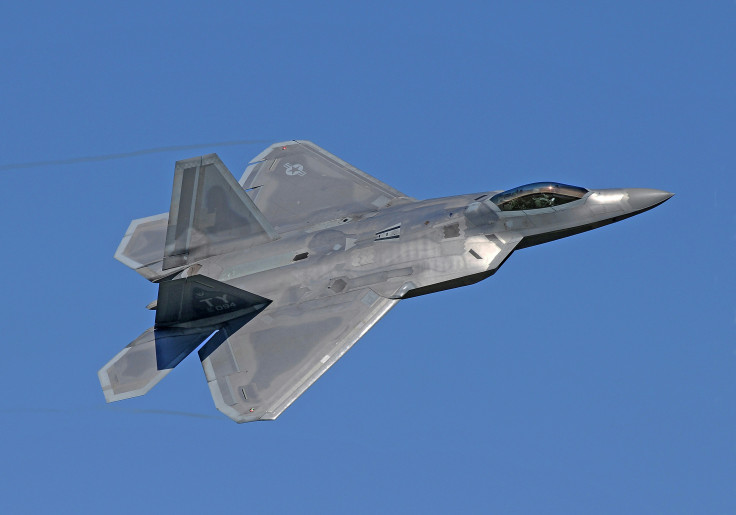NATO on Red Alert: Brazen Putin Jets Breach Estonian Airspace for 12 Minutes
Russian jets stayed in Estonian airspace for 12 minutes unannounced

Estonia has accused Russia of carrying out an 'unprecedentedly brazen' violation of its sovereignty after three Russian MiG-31 fighter jets entered its airspace for nearly 12 minutes on Friday morning.
The incursion near Vaindloo Island in the Gulf of Finland is the longest in recent memory and prompted Tallinn to invoke Article 4 of NATO's founding treaty, a step taken only in moments of serious security concern, according to BBC News.
The Violation Over Vaindloo
The Estonian government confirmed that the three aircraft entered from the northeast on 19 September without filing flight plans. Their transponders were switched off, and they failed to establish radio contact with Estonian air traffic controllers. Radar operators tracked the jets as they penetrated almost 10 kilometres into Estonian territory before they were forced to withdraw, ERR News reported.
Estonia's Defense Forces said the incursion was not routine but a significant breach of international law. Foreign Minister Margus Tsahkna described it as 'unprecedentedly brazen'.
Officials pointed out that past violations typically lasted less than a minute, while the two earlier incidents this year extended to about four minutes. The 12-minute flight marked a new level of provocation, ERR News noted.
NATO Scrambles F-35s
The intrusion triggered a rapid response from NATO. Italian F-35 jets stationed at Ämari Air Base in northern Estonia scrambled to intercept the Russian fighters.
Finnish jets were reported to initially shadow the intruders over the Gulf of Finland before handing them over to NATO aircraft inside Estonian airspace. The Italian pilots then escorted the Russian planes until they departed toward the Kaliningrad region.
A NATO spokesperson said that the incident was 'yet another example of reckless Russian behaviour' and underlined that the alliance's Baltic Air Policing mission responded exactly as designed.
Following a violation of Estonian air space, Swedish JAS 39 fighters intercepted and monitored three Russian MiG-31 fighter jets over the Baltic Sea today. Sweden is always ready to ensure the safety, security and integrity of our airspace together with our allies.#WeAreNATO pic.twitter.com/gpTbmngiKc
— Försvarsmakten (@Forsvarsmakten) September 19, 2025
Article 4 Consultations
Following the incursion, Estonia announced it would trigger Article 4 of the North Atlantic Treaty, which allows member states to request urgent consultations when their territorial integrity or security is threatened.
It is the second time this month the clause has been invoked, after Poland raised concerns about Russian drones crossing its airspace on 10 September, according to BBC reporting.
Estonian Prime Minister Kristen Michal stressed the need for unity: 'NATO's response to any provocation must be united and strong. We consider it essential to consult with our allies to ensure shared situational awareness and to agree on our next joint steps.'
The North Atlantic Council, NATO's principal decision-making body, is expected to convene in the coming days, BBC reported.
Diplomatic Fallout
Tallinn also summoned Russia's chargé d'affaires to deliver a formal protest note. Estonia's allies quickly expressed solidarity, with France, Germany, the UK, Finland, Latvia, and others issuing condemnations, ERR reported. NATO Secretary General Mark Rutte held a call with Michal to reaffirm the alliance's support.
Across the Atlantic, US President Donald Trump responded cautiously, telling reporters: 'I don't love it. I don't like when that happens. Could be big trouble. But I'll let you know later.'
For Estonia, the episode underscored the importance of NATO's presence in the region. Tsahkna argued that Russia's behaviour showed the need for stronger political and economic pressure against Moscow, warning that 'its neighbours must take the strengthening of their defence capabilities seriously.'
Allied air forces are on watch 24/7 #SecuringTheSkies above us.
— NATO (@NATO) September 20, 2025
If they detect suspicious activity, they rapidly launch fighter jets to approach the aircraft and investigate ✈️
Watch to learn more about air interceptions ↓
Testing NATO's Resolve
Since Russia's annexation of Crimea in 2014, Estonia has recorded more than 40 airspace violations by Russian military aircraft, almost always near Vaindloo. Analysts told BBC that the incidents serve as deliberate tests of NATO's readiness.
The length and scale of Friday's breach, with three supersonic interceptors lingering for 12 minutes, represented a marked escalation. Observers warn that such actions are not only dangerous in terms of aviation safety but also amount to strategic messaging from Moscow, aimed at normalising provocations and probing alliance cohesion.
The violation also follows reports of Russian drones entering the airspace of Poland and Romania, heightening tensions across NATO's eastern flank, according to BBC reporting.
As the Baltic region braces for further provocations, NATO officials insist their air policing mission is effective. Michal said: 'The situation was under control. NATO fighters responded, and the Russian aircraft were forced to withdraw.'
With Estonia now joining Poland in invoking Article 4 within the same month, the alliance faces mounting pressure to reinforce deterrence and prove that its collective defence commitments remain unshakable.
© Copyright IBTimes 2025. All rights reserved.




















